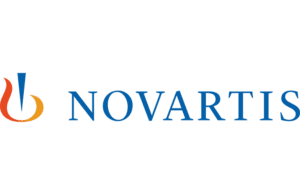 Novartis (NYSE: NVS) recently announced that the pivotal iptacopan Phase 3 APPLY-PNH trial met both its primary and most secondary endpoints in patients with paroxysmal nocturnal hemoglobinuria (PNH). The company recently presented the data at this year’s American Society of Hematology (ASH) meeting.
Novartis (NYSE: NVS) recently announced that the pivotal iptacopan Phase 3 APPLY-PNH trial met both its primary and most secondary endpoints in patients with paroxysmal nocturnal hemoglobinuria (PNH). The company recently presented the data at this year’s American Society of Hematology (ASH) meeting.
Almost all iptacopan recipients had blood-transfusion independence and had clinically meaningful patient-reported-fatigue improvements. There were no serious cases of breakthrough hemolysis (BTH). Iptacopan led to an 80% difference to anti-C5 in the estimated proportion of patients achieving 2 g/dL or more hemoglobin-level increases from baseline. The drug candidate also led to a 67% difference to anti-C5 in the estimated proportion of patients achieving 12 g/dL or more hemoglobin levels.
“As an oral monotherapy, iptacopan offers PNH patients the convenience of an at-home or anywhere treatment, freeing them from the need to travel to an infusion center for treatment,” said Dr. Régis Peffault de Latour of Saint-Louis Hospital, Greater Paris University Hospital. “In fact, data from a patient and physician treatment preferences study in immune thrombocytopenia showed that patients have a preference for orally administered treatment over injections.”

[Iptacopan image courtesy of PubChem]
“The Phase 3 APPLY-PNH results demonstrate iptacopan is superior to anti-C5 therapies in adult PNH patients with residual anemia despite prior treatment with anti-C5s,” said de Latour, who is the APPLY-PNH study principal co-investigator.
He said that iptacopan was “vastly superior in providing clinically meaningful increases in hemoglobin levels without the need for blood transfusions.”
In addition, iptacopan had a safety profile in the APPLY-PNH study that was consistent with previously reported data, with no serious infections caused by encapsulated bacteria.
Iptacopan was discovered and developed at the Novartis Institutes for BioMedical Research (NIBR). It is now in clinical development for the rare and life-threatening blood disorder PNH, as well as a number of rare complement-driven renal diseases (CDRDs) where significant unmet needs exist. “Iptacopan is being studied in Phase 3 trials for the complement-mediated kidney diseases (CMKDs) C3 glomerulopathy (APPEAR-C3G [NCT04817618]), IgA nephropathy (APPLAUSE-IgAN [NCT04578834]), and atypical hemolytic uremic syndrome (APPELHUS [NCT04889430]), as well as in a number of additional indications in Phase 2,” de Latour said.
When asked about iptacopan’s potential to reduce fatigue, de Latour noted that patients with PNH are impacted daily by fatigue induced by the disease. Such fatigue may drastically reduce their private activity, including sports, meeting friends or spending time with family. It can also affect their professional life. “Increasing hemoglobin level and ensuring transfusion independence might drastically improve their quality of life with their loved ones and at work,” de Latour concluded.